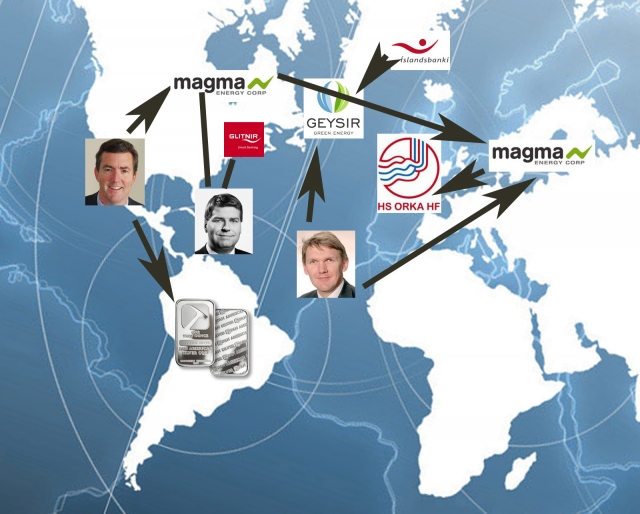 It has hardly escaped the attention of anyone living in Iceland of late, that the Canadian geothermal company, Magma Energy, recently bought Geysir Green Energy´s (another geothermal energy company) stock in HS Orka (southwest-peninsula power company), making Magma a majority stockholder with 98,5% partnership. Magma´s purchase of GGE´s stock comes as no surprise whereas it´s been clear from the onset that Magma intended to claim majority ownership over HS Orka.
It has hardly escaped the attention of anyone living in Iceland of late, that the Canadian geothermal company, Magma Energy, recently bought Geysir Green Energy´s (another geothermal energy company) stock in HS Orka (southwest-peninsula power company), making Magma a majority stockholder with 98,5% partnership. Magma´s purchase of GGE´s stock comes as no surprise whereas it´s been clear from the onset that Magma intended to claim majority ownership over HS Orka.
Small and Cute – For Concerned Icelanders
Ross Beaty, CEO of Magma Energy, has repeatedly been asked if he´s exploiting Iceland´s economic turmoil to claim control over the country´s resources, which he has always denied. On the 26th of August last year when he appeared on Kastljós, an ‘after-news special’ program on RUV (Icelandic National Broadcasting Association), Beaty also denied being interested in more power plants. “No, we´re focusing on this now. This is a small nation and it doesn´t serve our purposes to become to big”.
Because of exactly these comments, the announcement that HS Orka had sought permission to do test drilling in Hrunamannaafrétti, from Flúðir and into Kerlingarfjöll in search of geothermal areas garnered a considerate ammount of attention. Keep in mind that a research permission is not a permission to raise a power plant, but still, just drilling one test hole can cause a considerate ammount of damage on pristine land. Then, just a few days later, RUV news reported that Suðurorka, an energy company owned by HS Orka and The Icelandic Power Company (a consulting company), has plans of building a dam in Skaftárhreppur, the 150 MW Búlandsdam, over the next four years. HS Orka seems therefore to be on the warpath.
Read More
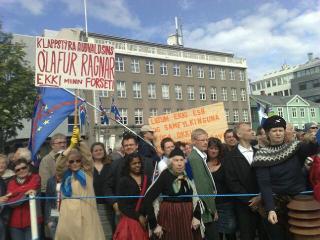
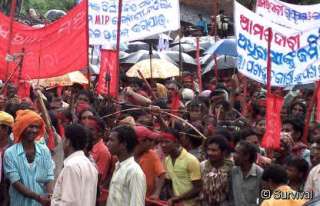
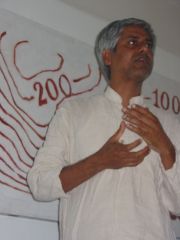
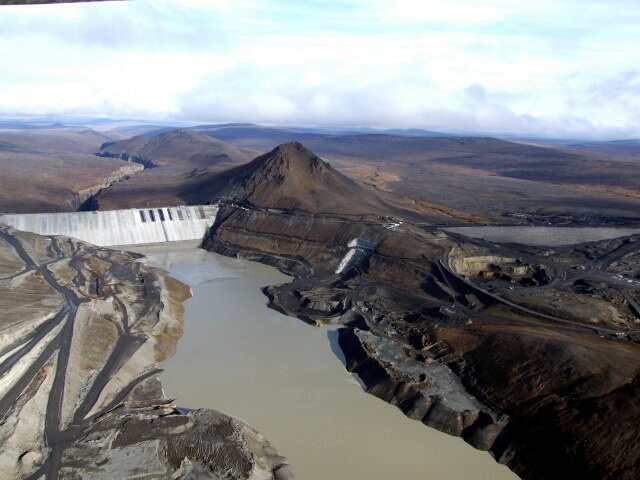 Since 2002, when work began on constructing the Kárahnjúkar dam, which today provides electricity to Alcoa’s aluminum smelter in Reyðarfjörður, until end of the year 2009, 1700 work related injuries have been reported in relation to the dam’s construction. 120 of those injured are still disabled from work, ten of them having irrecoverable injuries – and four workers have died as results of their accidents.
Since 2002, when work began on constructing the Kárahnjúkar dam, which today provides electricity to Alcoa’s aluminum smelter in Reyðarfjörður, until end of the year 2009, 1700 work related injuries have been reported in relation to the dam’s construction. 120 of those injured are still disabled from work, ten of them having irrecoverable injuries – and four workers have died as results of their accidents. It has hardly escaped the attention of anyone living in Iceland of late, that the Canadian geothermal company, Magma Energy, recently bought Geysir Green Energy´s (another geothermal energy company) stock in HS Orka (southwest-peninsula power company), making Magma a majority stockholder with 98,5% partnership. Magma´s purchase of GGE´s stock comes as no surprise whereas it´s been clear from the onset that Magma intended to claim majority ownership over HS Orka.
It has hardly escaped the attention of anyone living in Iceland of late, that the Canadian geothermal company, Magma Energy, recently bought Geysir Green Energy´s (another geothermal energy company) stock in HS Orka (southwest-peninsula power company), making Magma a majority stockholder with 98,5% partnership. Magma´s purchase of GGE´s stock comes as no surprise whereas it´s been clear from the onset that Magma intended to claim majority ownership over HS Orka.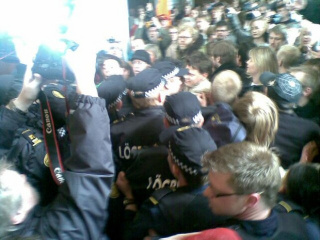
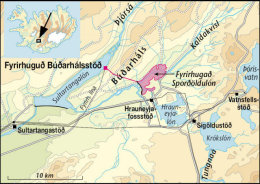 Rio Tinto Alcan (ISAL) has landed all the energy-related deals necessary for the company to start expanding it’s aluminum smelter in Straumsvík. In the middle of June, Landsvirkjun (National Power Company) and Alcan renewed their current deal on energy purchase between the companies. The renewal included an extension on purchase right up until the year 2036, along with an added purchase of 75MW of power, energy Alcan needed to secure to be able to act on their plans on expanding the smelters productional capacity by 40.000 tons a year. This expansion will not exceed the companies current boundaries, thus manouvering around any results from local referandums against the smelters expansion. As mentioned earlier, the expansion also requires these 75MW of power on top of all the energy Alcan is already receiving at bargain prices. But the deal does have some reservations, most prominently a demand that the uncertainity about the taxation of heavy industry in the country be settled before the 31st of August. This is a clear and blatant example of how the power-sector and aluminum lobbyists toy with the countrys government, that has never dared to resist or stand up to this kind of pressure, or blackmails as it is, of financial muscle, so the same should be expected in this case.
Rio Tinto Alcan (ISAL) has landed all the energy-related deals necessary for the company to start expanding it’s aluminum smelter in Straumsvík. In the middle of June, Landsvirkjun (National Power Company) and Alcan renewed their current deal on energy purchase between the companies. The renewal included an extension on purchase right up until the year 2036, along with an added purchase of 75MW of power, energy Alcan needed to secure to be able to act on their plans on expanding the smelters productional capacity by 40.000 tons a year. This expansion will not exceed the companies current boundaries, thus manouvering around any results from local referandums against the smelters expansion. As mentioned earlier, the expansion also requires these 75MW of power on top of all the energy Alcan is already receiving at bargain prices. But the deal does have some reservations, most prominently a demand that the uncertainity about the taxation of heavy industry in the country be settled before the 31st of August. This is a clear and blatant example of how the power-sector and aluminum lobbyists toy with the countrys government, that has never dared to resist or stand up to this kind of pressure, or blackmails as it is, of financial muscle, so the same should be expected in this case.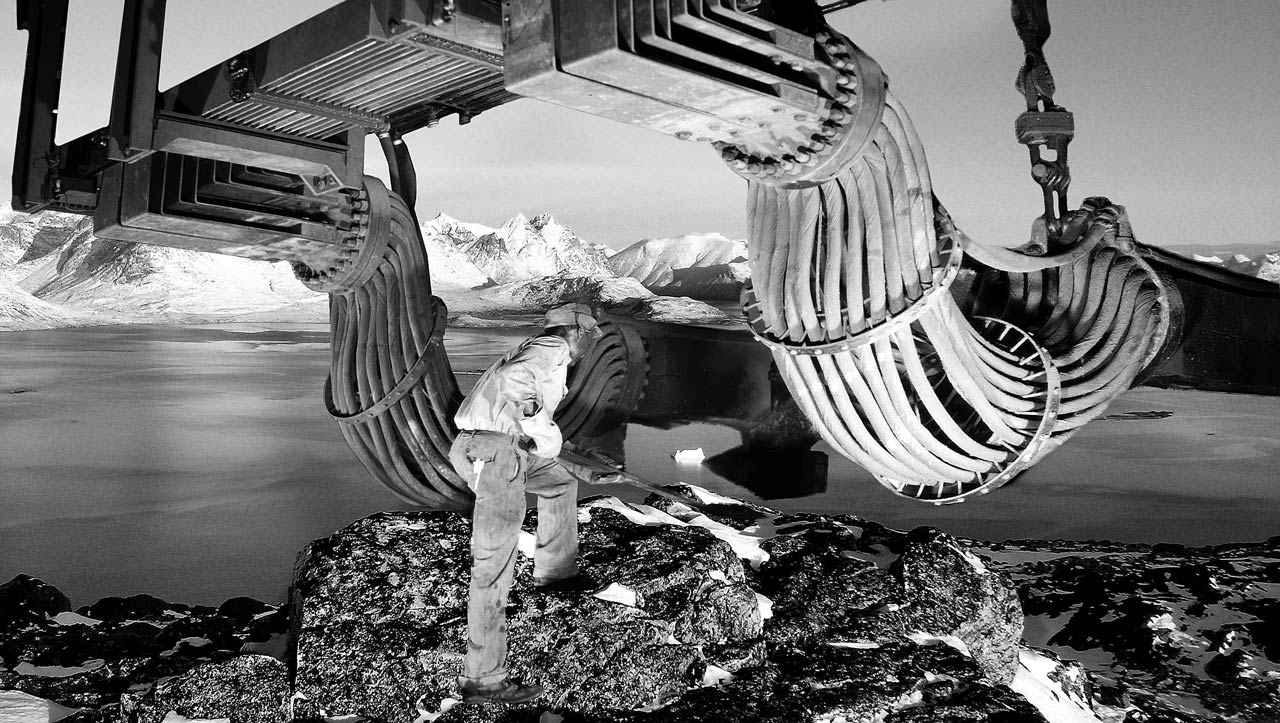
 Orissa is the most mineral rich state in India. It is green and fertile, a patchwork of tiny fields and thickly forested mountains with waterfalls tumbling over their red rocks. Like many of the world’s remaining areas of natural fertility, these mountains are largely populated by tribal peoples, which in India are called Adivasis – meaning literally ‘the original inhabitants’ – and are thought to be one of the oldest civilisations in the world. One quarter of the Orissan population are tribal, making it also the ‘poorest’ state in India according to the World Bank. But its figures judge well-being only by monetary exchange, and fail to mention that there has never been a famine recorded here, and that many Adivasis rarely use money, living in balance with the mountains, streams and forests which provide everything they need. In thanks for natures’ providence many Adivasi cultures worship the mountains on which they depend as Gods, and vow to protect their bountiful natural systems from damage. Some of the Orissan mountains are among the last ancient forest capped hills in India, thanks to the determination of tribal inhabitants against British colonial efforts to log them.
Orissa is the most mineral rich state in India. It is green and fertile, a patchwork of tiny fields and thickly forested mountains with waterfalls tumbling over their red rocks. Like many of the world’s remaining areas of natural fertility, these mountains are largely populated by tribal peoples, which in India are called Adivasis – meaning literally ‘the original inhabitants’ – and are thought to be one of the oldest civilisations in the world. One quarter of the Orissan population are tribal, making it also the ‘poorest’ state in India according to the World Bank. But its figures judge well-being only by monetary exchange, and fail to mention that there has never been a famine recorded here, and that many Adivasis rarely use money, living in balance with the mountains, streams and forests which provide everything they need. In thanks for natures’ providence many Adivasi cultures worship the mountains on which they depend as Gods, and vow to protect their bountiful natural systems from damage. Some of the Orissan mountains are among the last ancient forest capped hills in India, thanks to the determination of tribal inhabitants against British colonial efforts to log them.